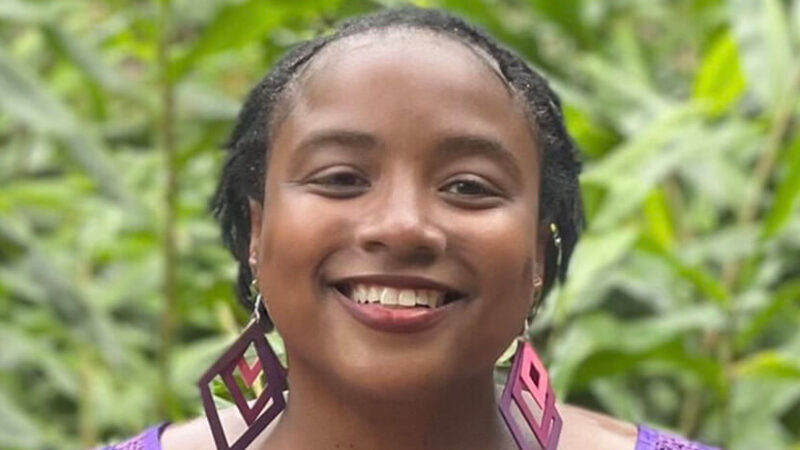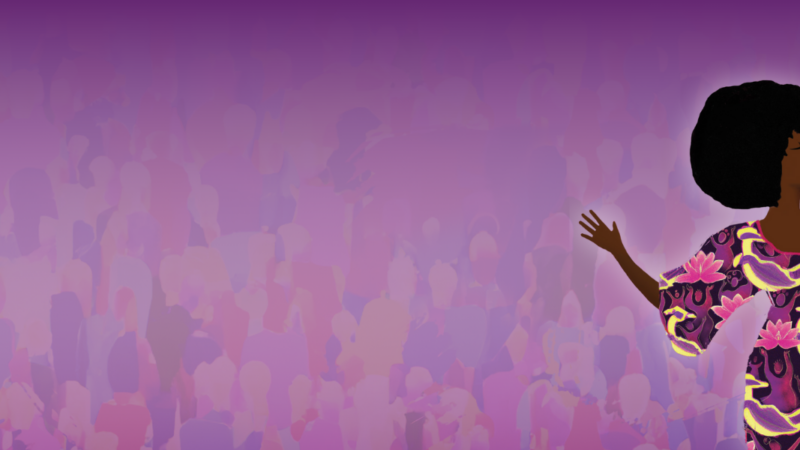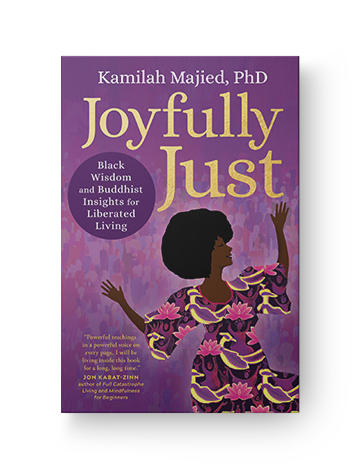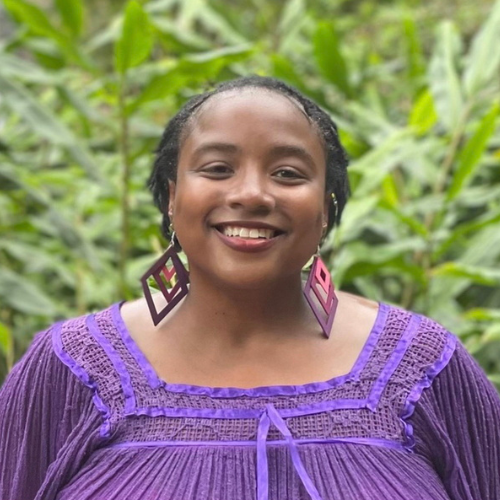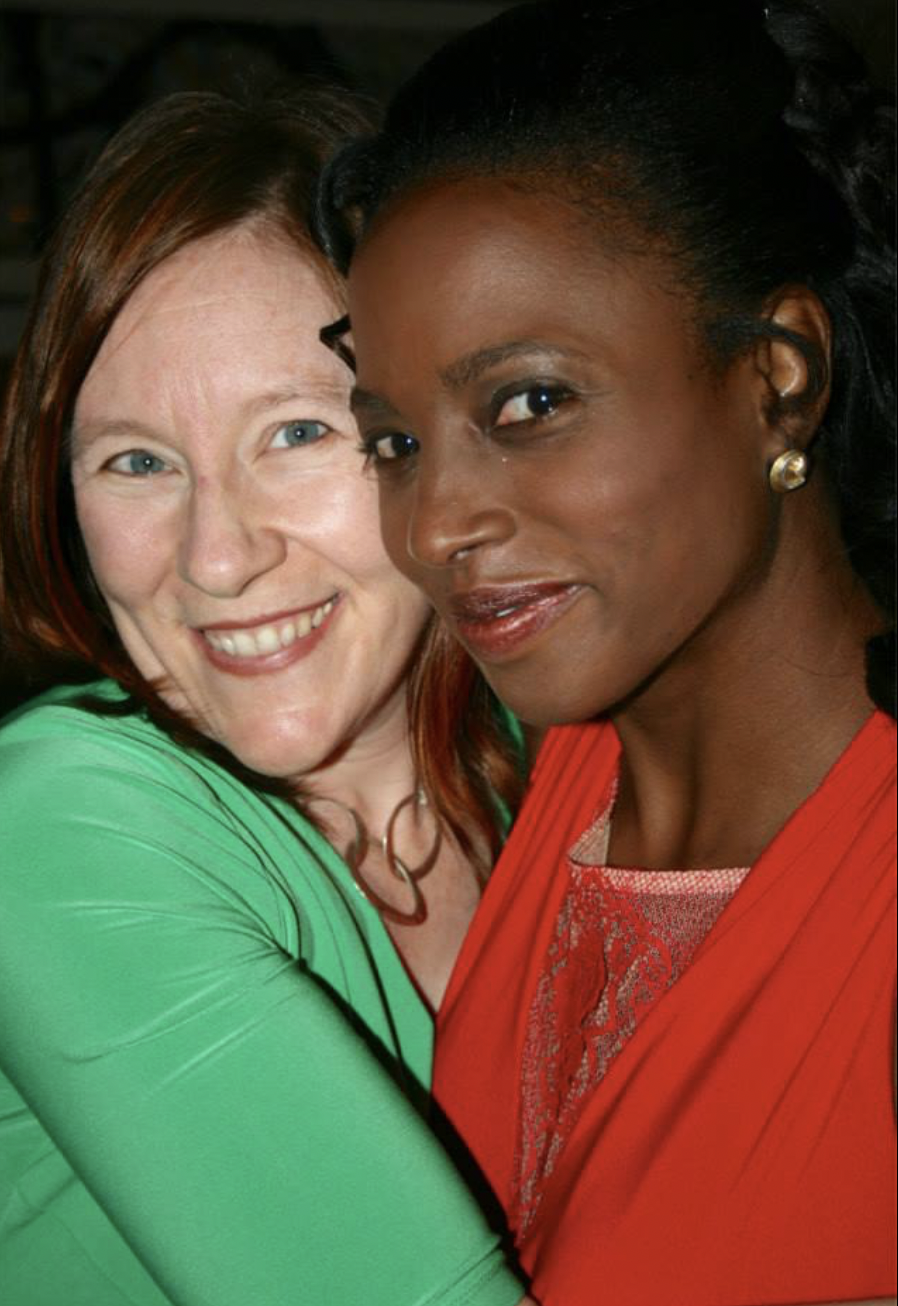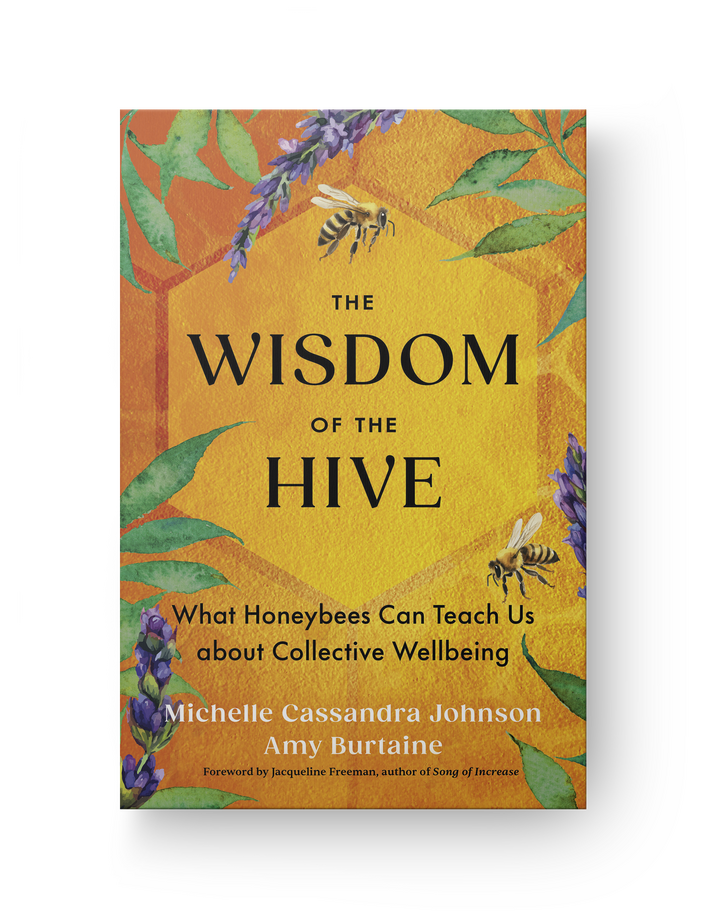My lifelong aspiration–and the goal of my new book, Joyfully Just: Black Wisdom and Buddhist Insights for Liberated Living–is to support people from all spiritual traditions and cultural backgrounds in using meditative practices to reclaim joy. Our spirits, bodies, minds, and hearts need to be buoyant to navigate the unceasing waves of grief, fear, doubt, prejudice, and devaluation that we experience internally, interpersonally, and communally. Joyfully Just is about tapping into that buoyancy, that levity, with diverse meditative practices.
In particular, Joyfully Just highlights practices, teachings, and insights from Buddhism and Black contemplative traditions. Black contemplative traditions include practices that bring forth insight and joy. You may have heard the expression “Black joy” and wondered, What is that, exactly? Black joy is self-transcendence. It is embodied resistance to shame, despair, and anything else that would limit our capacity to be just towards ourselves and those around us. It is the insistence on and expression of internal freedom despite external restrictions. Black joy is resilient creativity that creatively grows more resilience.
The Black wisdom traditions I explore in Joyfully Just include those shared through music such as Gospel, Blues, Rock, Jazz, R&B, and Hip-Hop; language and dialect practices; and dance and communicative kinesic (movement and gesture) practices. The musical genres developed by Black Americans are universally embraced because they help all people engage creatively with the joys and pains of life. As such, Black music is often a contemplative practice that can ground us in empowered well-being, even amidst our worst pain. As we sing our Blues, we invigorate our lives with joy. That joy creates spaciousness around our suffering so that we can develop insight into its meaning and value. Take a moment now and see if you can think of one song from any African American musical genre that deepens your insight, helps you navigate your suffering, or expands your joy. Write it down so that you remember that it is but one example of how listening to Black music is a contemplative practice that enriches your life.
Black contemplative practices are often misunderstood—especially when they are appropriated. Sometimes they are underestimated as simply entertainment or frivolity. In Joyfully Just, I offer practices to shed light on how much insight and guidance for wise, courageous living we can–and do–receive from Black cultural traditions.
I explore Buddhism and Black wisdom together because although the spiritual and religious traditions of Black people are diverse, as are Buddhist lineages, many secular Black wisdom traditions and overarching Buddhist principles share common insights. For example, Black musical traditions illustrate the unity of suffering and joy and the possibility for self-transcendence and enlightenment in any circumstance. The creative, lively resilience of Black life shows us, in so many ways, what enlightenment looks like in daily living.
Many African cultures, including African American culture, have rituals and practices that are uniquely contemplative and seamlessly integrated into everyday life. African dance is one example of this. African dancing is listening to the body, trusting the body to tell its story. African dance teacher Wyoma speaks of it as praying with the body.
How do you avoid cultural appropriation of Black contemplative practices? It’s simple, but not easy. When you engage with Black music, dialect, dance, or other cultural practices, reiteratively reflect on how you demonstrate or could begin to demonstrate love for and solidarity with Black people.
I invite you to ask yourself:
- How is solidarity with and love for Black people already a part of my inner dialogue? Of my relationships? Of how I experience the world with joy?
- How can I strengthen my connections with Black people and Black wisdom practices?
With these as lifelong inquiries, we gain insight into how Black contemplative practices enrich our lives, actualize our interdependence, and deepen our sense of connection with ourselves and the world.




